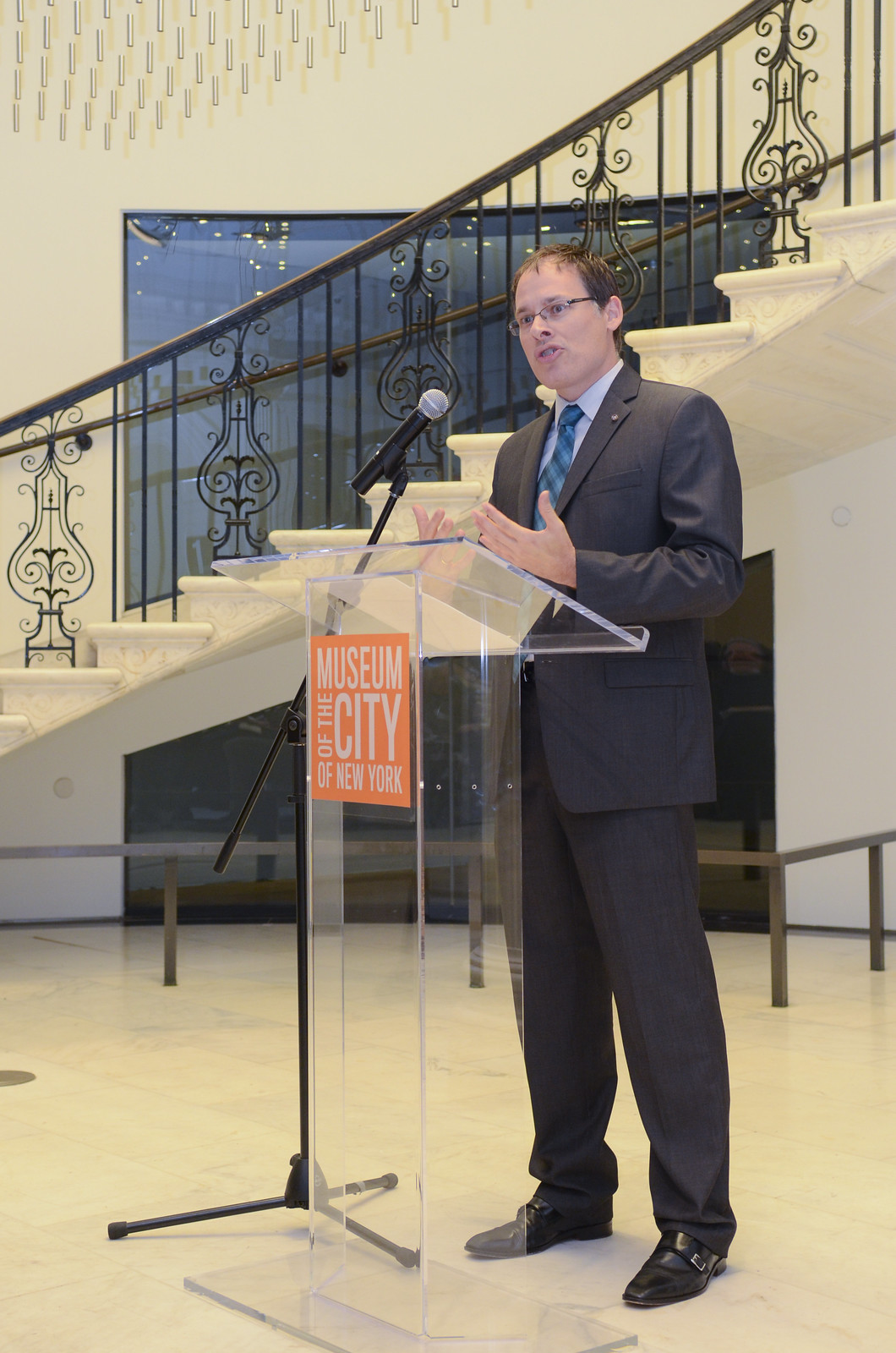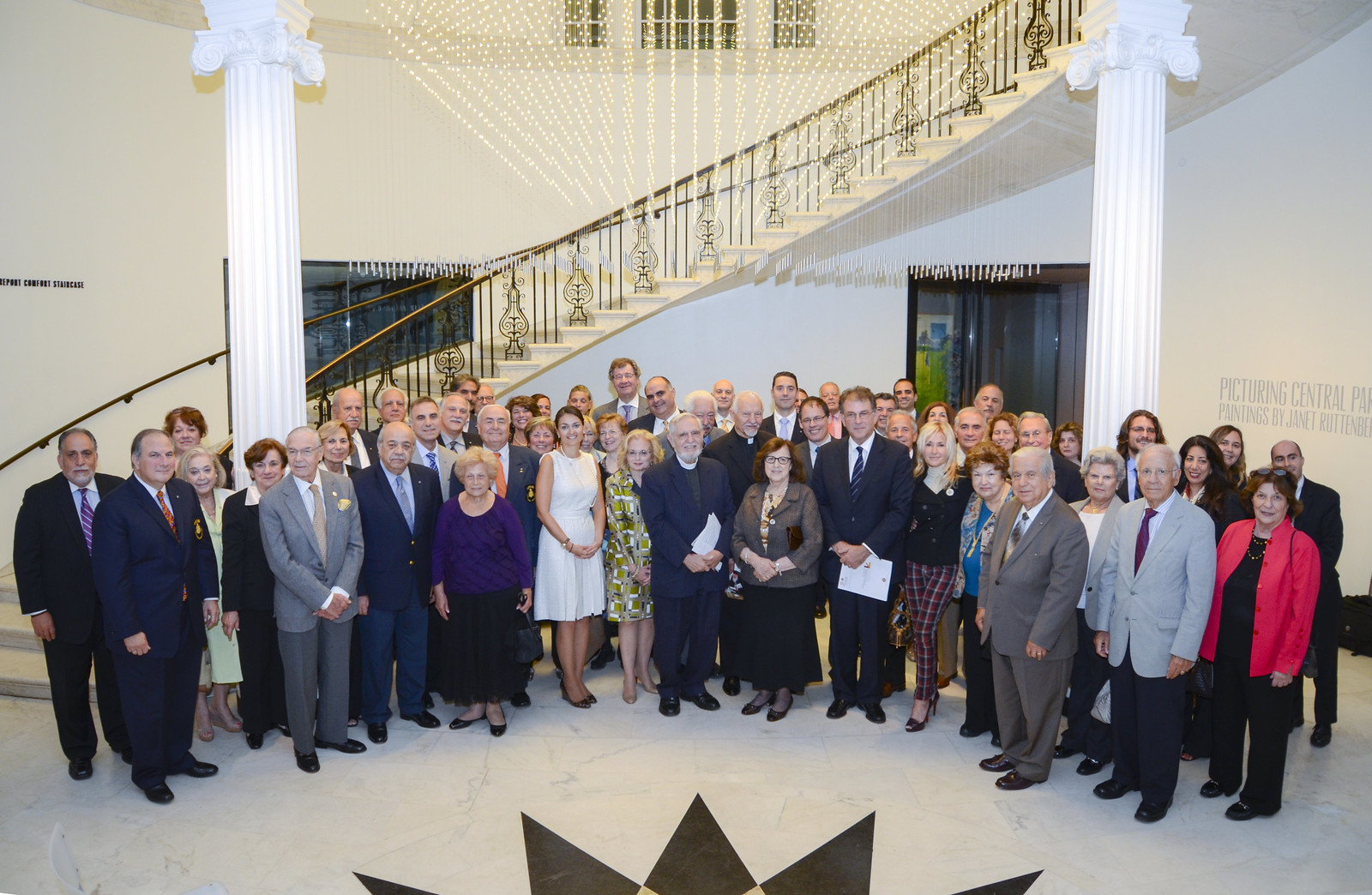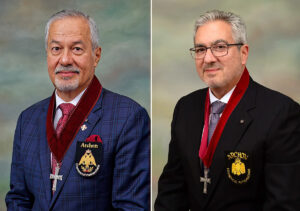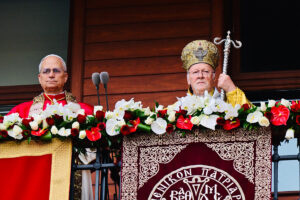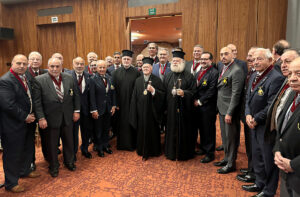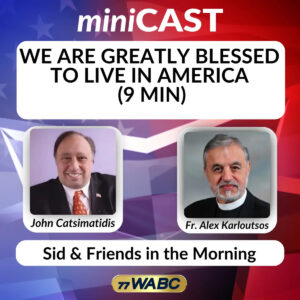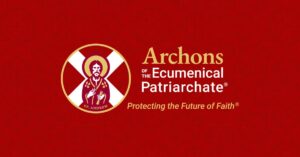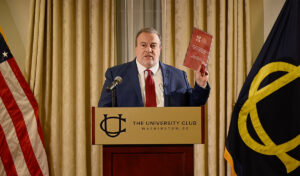|
|
| Archon Dr. George Demacopoulos delivers his lecture at the Museum of the City of New York. (Photos by J. Mindala)
|
A lecture, entitled, “The Papacy in Transition and the Future of Orthodox-Catholic Relations,” was presented by Archon Dr. George Demacopoulos, Thursday, September 19, 2013, at the Museum of the City of New York.
Demacopoulos’ talk began with a demonstration of the ways that the resignation of Pope Benedict and the early actions of Pope Francis suggest that the Roman Catholic Church is moving in an unprecedented direction. This is notable, Demacopoulos argued, because it suggests in both action and word that there may be an authentic willingness in the papacy to revisit the ecclesiological structure of the Church that has pitted papal primacy against the episcopal assembly for more than one thousand years.
His presentation addressed two “realities” that he believes prevent the two sides from authentic theological conversation. The first, he maintained, is that Christians since the middle ages have become very accustomed to defining themselves in contradistinction to others. “We have all become so accustomed to thinking about what we believe in terms what we do not believe (often naming Catholic or Protestant doctrines we do not like) that we have artificially come of define ourselves and our faith through a kind of perverted apophaticism. Until we are willing to move beyond this barricade mentality, the ecumenical conversation will not move forward.” A second practical challenge that prevents progress in the Orthodox/Catholic dialogue is the current ecclesial structure of the Orthodox world, which includes eighteen autocephalous churches. “The very fact that the Orthodox ecclesiastical system does not map well onto the Roman Catholic one means, for all intents and purposes, that the Roman Catholics must simultaneously negotiate with eighteen independent Orthodox churches. In the ancient world, the autocephalous churches were held together institutionally through an imperial structure. In the absence of that superimposed secular authority, there is no vehicle to facilitate a common ecumenical endeavor.”
Despite these challenges, Demacopoulos suggested that there were several reasons to think that incremental steps will come. In part, he argued, this is because Orthodox and Roman Catholics can work together in common cause even without the restoration of ecclesiastical communion. Noting Ecumenical Patriarch Bartholomew’s leadership on the environment and Pope Francis’ strong promotion for social justice, Demacopoulos predicted that the two sides would increasingly work together for the promotion of a common moral vision. He also maintained that the real push for ecumenical progress was likely to come from the pews, and even more likely to come from the United States. “In the past decade, approximately 85% of marriages performed in the Orthodox Church in America have been mixed marriages. It will be those families, their questions, and their pastoral needs that will force the hierarchs to respond to their reality.”
Dr. Demacopoulos is the historian for the Order of Saint Andrew, professor of Historical Theology and co-founder of the Orthodox Christian Studies Center at Fordham University. The lecture was co-sponsored by the Archons of New York, Connecticut and New Jersey from Archon Districts 1, 2 and 3 and organized principally by Regional Commander Nikiforos Mathews.

